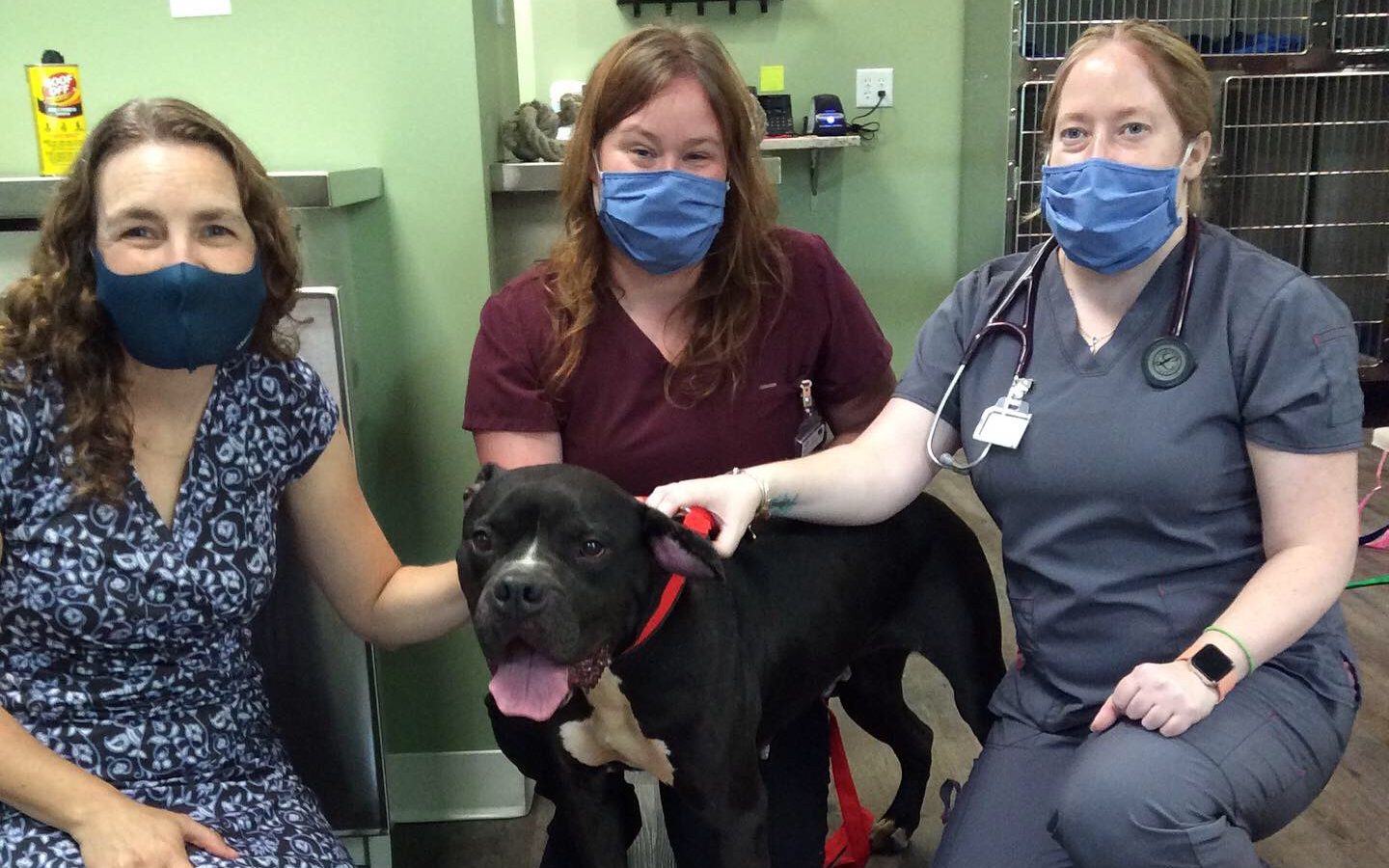Dr. Lora LaBranche, Jackie Nickerson CVT, and Dr. Rebecca Lussier at Braintree Veterinary Care
Around our opening, we had a compelling case that reminded us why it is essential to look for heartworm disease. A sweet dog came into the hospital. Her owners were concerned about the swelling in her ear. What looked to be a routine case quickly evolved as we discovered she had heartworm disease. Now the client, who had come in for something that seemed pretty straightforward, was dealing with a completely different concern.
This case was a stark reminder of why keeping our pets on monthly heartworm prevention is essential. In 2019, the American Heartworm Disease Incidence Map showed that the Boston area is a significant hotspot. Across New England, individual veterinary clinics averaged 1 to 25 cases in 2019.
Dogs are the natural hosts for heartworms; this parasite can live within their hearts, lungs, and blood vessels. This disease can be fatal if left untreated. But how is heartworm transmitted from infected dogs to healthy dogs? The answer is quite a common pest, mosquitoes. Adult female heartworms live inside an infected dog and produce larvae that circulate within the bloodstream. When a mosquito bites this dog, the mosquito becomes infected over the next 10–14 days as the larvae mature. This infected mosquito can bite a healthy dog, allowing the larvae to enter its bloodstream. In 6 months, the larvae develop into mature adult heartworms within the pet, and the cycle repeats.
To ensure your pet does not become infected with heartworms, testing and prevention are key! The first step is testing. The American Heartworm Society recommends that puppies get tested at seven months and again six months later, especially if they are not consistently on a heartworm prevention medication. This is because puppies are just as susceptible to this infection as adult dogs. After the first year, dogs should be tested annually, and the best part is that it only takes 10 minutes! Your veterinarian will take a small blood sample from your pet, and you can typically receive the results while you wait for your appointment.
After determining your pet does not have an active heartworm infection, the next step is heartworm prevention. For prevention to be effective, it needs to be given every month, all year round. Heartworm prevention is easy to show. Your veterinarian can determine what type of prevention is best for you and your pet. Options include injectable medications, oral tablets, and topical products. With many options available, it is easy to keep your pet protected. However, it is still required to keep up with annual testing. We all know as pet owners that sometimes we can miss a dose, or our dog can spit out or vomit a pill without any of us learning. Make an appointment with your veterinarian today to ensure your furry friend is protected!

